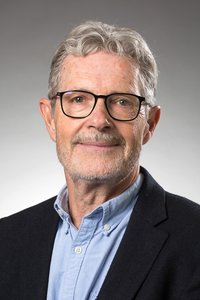- Education
-
Research
Current research
Talent
-
Collaboration
Businesses
Government agencies and institutions
Alumni
-
About AU
Organisation
Job at AU
The faculty management team has selected six focus areas to secure more and better applications for funding from the right researchers. The plan is to combine specific departmental initiatives with interdisciplinary collaborations. At the same time, a website will convey where, how and when a Health researcher can get help with an application.
2017.03.09 |

Six new initiatives intend to increase the success rate of funding applications at a time when competition is increasing. And they are urgently needed. As acting dean Ole Steen Nielsen's says, ST is not simply "massively better than Health. Arts and BSS are also catching up on us, which is why it is time to look for something new.”
Six new focus areas are the tools to increase the success rate, or as it is described in the faculty's 'must-win battle' for research 2017: Professionalise the application process and increase the quality of applications to attract increased external research funding.
The six focus areas have been adopted by the faculty management team and acting dean Ole Steen Nielsen emphasises the need to think outside the box at a time where competition is increasing and the forecast for attracting external research funding is at best one of status quo.
“We have spent a long period attempting to improve our performance for external funding, but unfortunately we are not there yet. All of us in the faculty management team therefore agree that we will, in addition to continuing with the good things that we already do, try a number of new initiatives, although we cannot of course guarantee in advance that everything will work as intended," says Ole Steen Nielsen.
The six new focus areas are:
Ole Steen Nielsen emphasises that the greatest effort will come to lie with the departments, who have the coming three-four months to prepare and present their plans for one another. A 'one size fits all' principle has never been on the table due to the departments' different starting points and opportunities.
"Several departments have already started to prepare plans with help from the Research Support Unit, and what is important here is not how the departments systematise their funding applications. The important thing is that the departments find a systematic procedure. We in the faculty management team agree that we need to exchange knowledge and ensure there is a mutual follow-up on this. We are scheduling this for around the time of the summer holidays," says Ole Steen Nielsen.
Concurrently with the departmental work on drawing up plans, the faculty management team is establishing an interdisciplinary research committee that will be responsible for determining the direction for working on major strategic initiatives at the faculty.
The plan is for the research committee to also coordinate new initiatives such as the planned networking workshops (see above). However, the research committee's mandate and composition is not yet determined, but will be discussed again at the next faculty management team meeting – among other things, because the members of the faculty management team really wish to avoid seeing the highly prioritised research committee ending up as 'yet another meeting'. The new dean must also have the opportunity to influence the coming process.
The faculty management team has decided that as part of the 'must-win battle' for research, a new website will be created which will provide researchers with information that is relevant for Health about application processes, important deadlines and opportunities to get help for applications.
Such help may either be found locally at the department or may come from the Research Support Office and, as something new, Health Communication. The faculty management team will thus prepare the ground for 15-20 selected major strategic applications triggering a fixed, but, of course, voluntary offer of communicative assistance for the non-academic parts of the application, so that the text comes across as easy-to-read and catchy.
The background for some of the six focus areas are initiatives that have turned out to work at ST and the Faculty of Health and Medical Sciences at the University of Copenhagen, and which have been developed further so they match Health’s situation. Other initiatives are based on the input to the dean's office and the faculty management team from professors and other specialists.